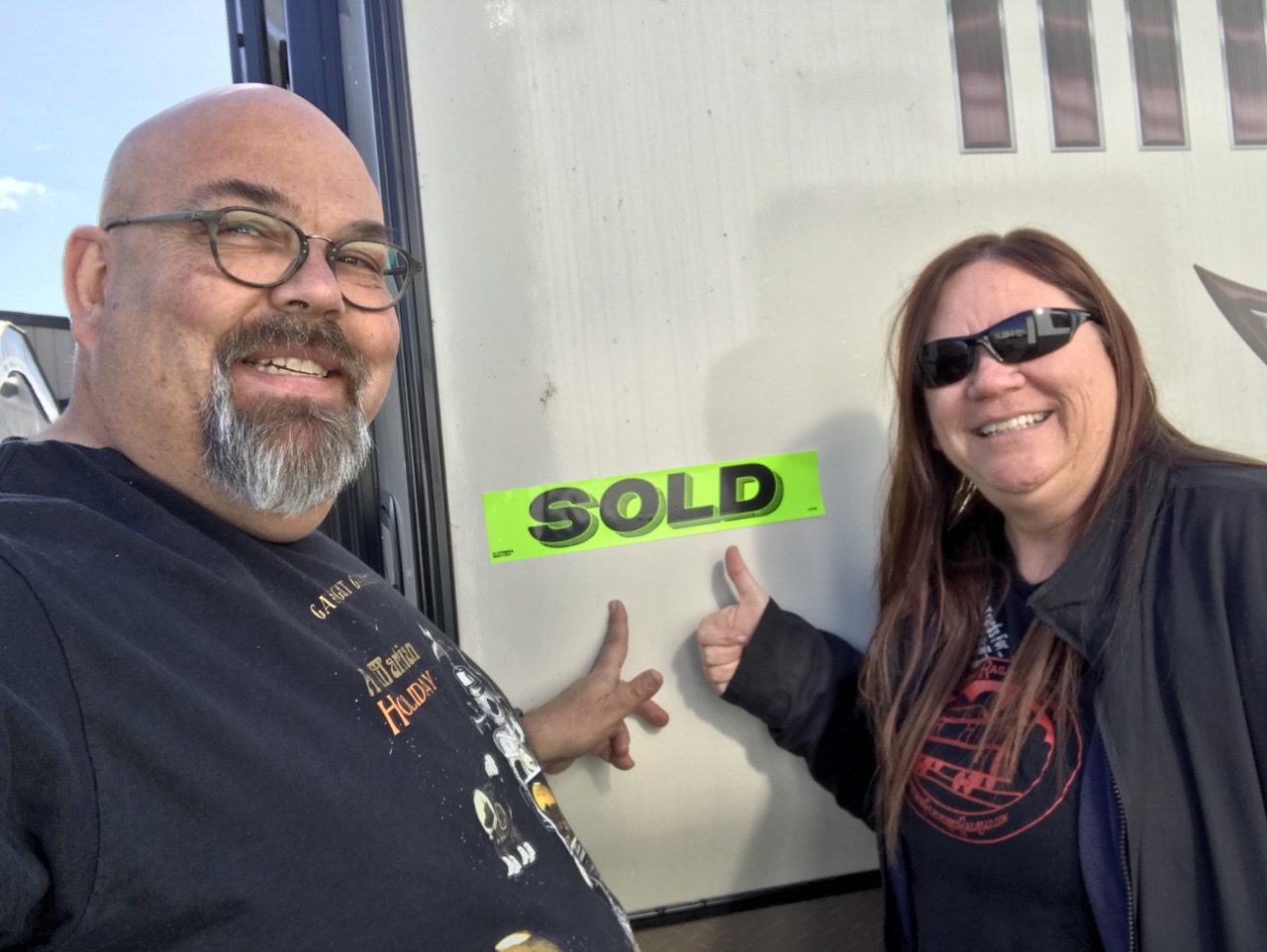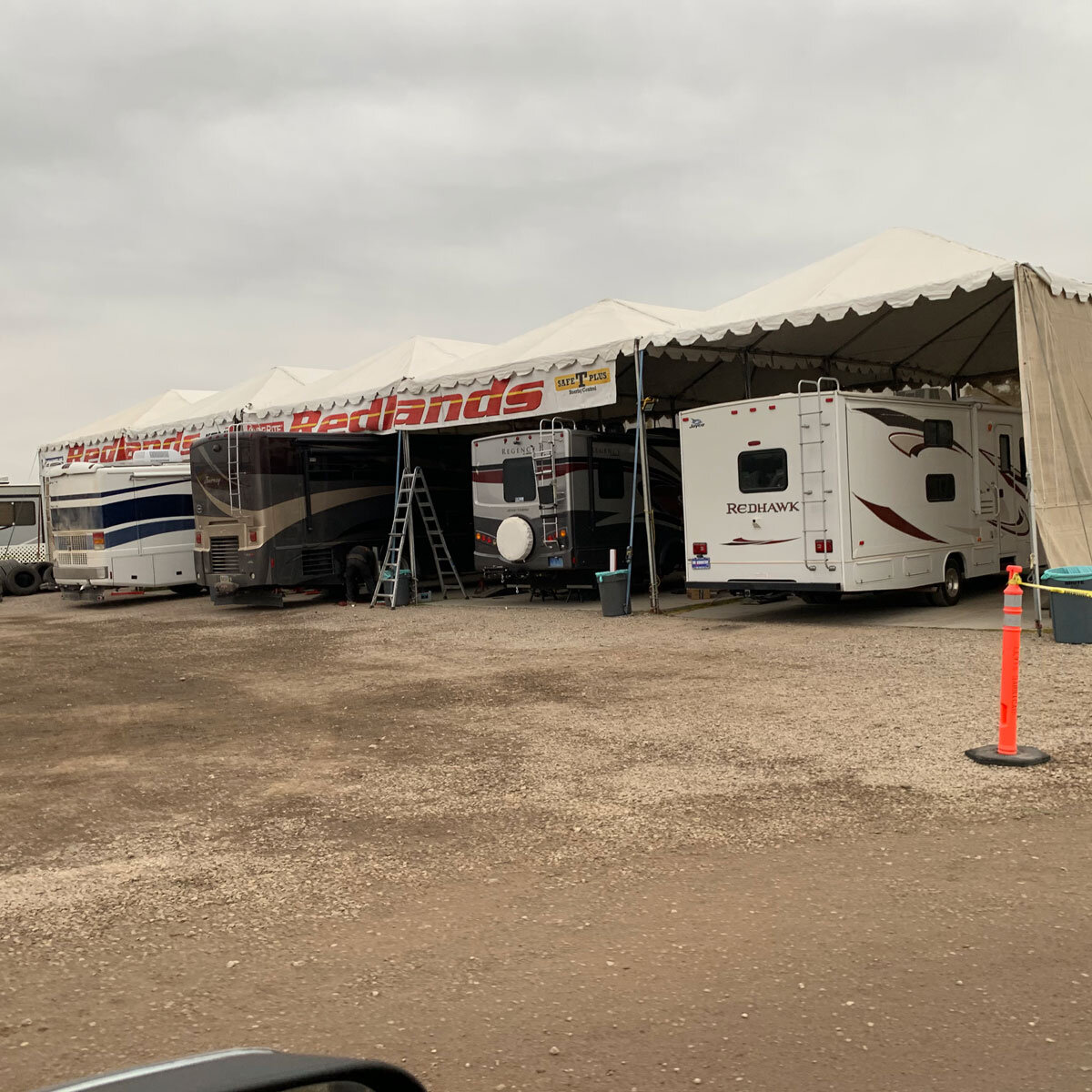Why you might hate RVing...
Will you hate RVing or is it StressLess Camping
One of the more popular reasons to visit the huge Quartzsite RV show - getting things looked after that have been bothering RV owners.
For a lot of reasons a good number of Americans have decided to give RVing a try. While I already think that RVing is the best way to vacation that there is, I bet there are a going to be a lot of people who disagree with me. So I thought I’d put together a bunch of reasons why you might just hate RVing…and how to turn that into StressLess Camping.
That seems like a strange idea for an RV industry advocate and admitted fan boy of the RV life but it also is worth noting that RVing is not for everybody. Heck, even Disneyland gets bad reviews.
Let’s start with the RVs themselves. RVs are hand-built in small batches. While people are used to the way vehicles are made, RVs are totally different.
Cars and trucks are different
A car or truck is the result of thousands and thousands of hours of professional engineering working with the latest computer resources. Passenger vehicles are then tested in virtual test labs and then tested in the real world. They’re crashed, crunched, driven like mad and tested again. Teams of engineers, lawyers, and testing professionals have spent thousands of hours and, often, over a billion dollars, before a vehicle ever sees the light of day.
RVs are different. In a great year there are about half a million RVs built from a small handful of manufacturers. In that group those manufacturers own dozens and dozens of brands, so only a few hundred of any one RV are ever made. A really successful RV might get up to 2,000 copies made in a year. By comparison, Ford sells about half a million F-Series trucks in a year. That’s more of basically just one vehicle, typically, than the entirety RV industry combined.
Furthermore, the personal investment in the RV industry by the people who design and build them varies widely. While some RV companies are staffed by RV enthusiasts, others are just there for the paycheck. I have worked with some people who represent RV brands who have never been camping nor have any of the executives from their brand.
Not all RVs are created equally
Not all RVs are the same. Nor are they all built to the same standards.
Plus RVs require routine maintenance. While you might never see the inside of a car dealership except for routine and infrequent maintenance on a car or truck, you are going to need to have an RV repaired professionally. Period. So the dealer from whom you bought that RV is going to matter a lot. More specifically, their service techs are going to matter a lot.
Another thing, the RV dealership agreement with the manufacturer generally does not force them to work on that brand of RV. So you might have a brand X RV that you bought half a state away to save money, but that doesn’t mean that your local RV dealership has to work on it. Sometimes they refuse to do so as there is almost no money in RV warranty work. Their profit often comes solely from the sale and if you bought it elsewhere, they could just tell you to take it back there even if it is a half a state away. Or two states away. And RV techs are worth their weight in gold so there’s a reason RV dealers are protective of great techs and their time.
Furthermore, there are all sorts of systems in an RV that require that you know how to use them.
For example, in your home the water heater is just on. When you go to take a shower, you just do. Wash the dishes in as much water as you please, for that matter. Use your favorite brands of shampoo and soap and toilet paper and all is right with the world.
That’s not as true in an RV.
RVs aren’t like homes
In an RV you generally have six gallons of hot water. Period. You heat that water by either electricity or propane. There’s a switch to turn the water heater on for electric and propane but also reset switches at the water heater if there’s an issue. Since you don’t travel with the water heater on and may even travel with no water in the system, there are procedures to start it up before your first use on each journey.
You are limited by the size of your holding tanks as well. You can literally use so much water that you overflow your holding tanks or just run yourself out of water if you’re not connected to a city water connection.
The fridge in an RV is another thing very different from the home. It is generally powered by propane or electricity and is of the absorption type, so it takes a good 18-24 hours to properly chill. This is something to think about before you leave. Days before you leave. (here’s an article with tips on doing so).
You should have a basic understanding of electrical systems and plumbing to make the most use of an RV. Oh, and it will really help to know how to make minor repairs.
For example, I believe I own one of the best quality travel trailers in the industry. But I have repaired the assembly for the kitchen drawer five times already and finally just rebuilt the whole darned thing myself. This has involved taking out the heater in the RV altogether as the drawer assembly was both above and below the heater.
Can you fix things?
We have fixed other things as well. The stove top repeatedly comes apart on trips even though I’ve put it back together with Loctite. Doesn’t matter. It rattles itself apart. It laughs at Loctite. Recently the refrigerator wasn’t chilling properly so a quick visit to YouTube showed me the issue and I took care of it. Problem solved, disaster (and warm beer) averted.
Most of the rest of the trailer has been really good but we did have a water leak that caused damage to the outside of the trailer. Water leaks are the single biggest issue in RVs and, even though I consider myself diligent in inspections and repairs to the outside, I still had a leak.
While I’m no Mr. Fixit I do know enough to do minor repairs on the RV and have educated myself in the routine maintenance that is required to keep my RV out of the repair shop and working well.
Let’s face it - you can’t get views like this in hotels that are less than $300/night.
So. Have I discouraged you from joining the fan club of RV owners? I hope I haven’t, actually. But I also want you to be aware that owning an RV is like owning a classic car. You’re going to have to fix things and it’s better if you understand the basics of how things work to get the most out of the experience.
The wonderful journeys and incredible trips we’ve taken in our travel trailer have been the best vacations of a lifetime. The fact that we have it sitting outside in the driveway calling us when we’re not using it is another big plus. Going somewhere really memorable and special is really no big deal, we hook up and go.
RVing tips
Well, we chill the fridge a day before and then pack some clothes. But the RV already has towels, soap, toilet paper, jackets, chairs and almost everything else we need for a wonderful adventure. And we’ve found others who share our wanderlust so we often go in groups to great getaways, even if those getaways are right around the corner.
If you’re still interested in the RV life know that, with all the attention RVing is getting, campgrounds are filling up. Quickly. But there are terrific alternatives. For example, off-grid camping or boondocking is a great way to get close to the land. There are also terrific services like Boondockers Welcome and Harvest Hosts. There are also great public lands that make for great off-grid camping.
Also know that many, many RV parks that are privately held have only one way to make a reservation - a phone call during “business” hours. I don’t get it either but that’s how it is.
While some might criticize the RV industry for not making quality products, I disagree with this. Yes, there can be improvements but when you think that you can buy an entire rolling house for much less than the price of the average new car, there have to be some accommodations for price made.
There are also huge differences in quality even among brands of RV from the same major manufacturer. Remember in the 1970s when GM made both the Vega and a Cadillac Fleetwood 60 Special? Two very, very differently-made cars from the same company, each appealing to a specific segment of the market. Well this is the same thing. There are great RVs and there are ones that will never last as long as the financing terms.
Before you make a buying decision, join several social media groups specifically for the brands you’re considering and pay attention to what’s being said. All brands of all products made by humans have issues, but some are just not well made at all, and others are. You’ll get to know the difference in short order.
It’s also good to ask people in the know. Industry experts or people who have a great deal of experience.
Once you’ve found a brand or two that are of high quality, establish a relationship with a local dealership that carries those brands. Know that some brands have sister brands that are identical; that may open up the dealership possibilities.
Generally smaller, locally-owned dealerships have a reputation in the community and word of mouth gets around. If they take care of their customers, that is what you’ll hear. If not, you’ll know that too. Check their reviews on sites such as Yelp.
Yes. You might hate RVing. But you might also join the thousands of Americans who think RVing is the best way to see this incredible country. With a little knowledge you, too, might be a StressLess Camper.





